Speaker Bios
Keynote Speaker | Charlie Blackwell-Thompson
Charlie Blackwell-Thompson serves as launch director for NASA’s Exploration Ground Systems Program, based at NASA’s John F. Kennedy Space Center in Florida. She will oversee the countdown and liftoff of NASA’s Space Launch System rocket and Orion spacecraft during its first flight test, called Artemis I. Named to the position in January 2016, Blackwell-Thompson is NASA’s first female launch director. Her role includes leading and managing the launch operations planning and execution for the Exploration Ground Systems program and Exploration Systems Development Division, or ESD.
She also serves as the cross-program lead to the Launch Integration team responsible for integration and coordination of launch operations across the three programs: SLS, Orion and EGS. In her role as launch director, she manages the development of all launch countdown plans, philosophy, and launch and scrub turnaround procedures and schedules, as well as training approaches.
Prior to being named launch director, Blackwell-Thompson served as the program’s Test Management Branch chief. The branch manages test, launch, and recovery operations for EGS and the ESD. She also served as the chief of Launch and Landing through the retirement of the Space Shuttle Program (SSP), before taking a leadership position within the Ground Processing directorate at Kennedy upon the SSP completion.
During the SSP, Blackwell-Thompson held numerous launch countdown leadership positions. She served as one of three certified NASA test directors for launch of the space shuttles. In addition, she served as the chief NASA test director from STS-130 until program completion. She also served as the assistant launch director for STS-133 and through numerous tanking tests.
Read Blackwell-Thompson’s full NASA biography.
Plenary Presenter | Julie Williams-Byrd
Julie Williams-Byrd is an electro-optics engineer at NASA’s Langley Research Center in Hampton, Virginia. As Langley’s Chief Technologist, Williams-Byrd advises the LaRC Office of Director and senior staff on technology matters and provides technical leadership for planning, management and evaluation of comprehensive, center-wide technology development activities with an emphasis on early stage technologies. She also leads and performs technology development related studies and performs data analysis for the NASA chief technologist at NASA Headquarters in Washington.
Prior to becoming chief technologist, she was a senior systems analysis in the Space Mission Analysis Branch (SMAB) in the Systems Analysis and Concepts Directorate. While in SMAB, Julie led and managed the integration function for a multi-center capability and technology team called the System Maturation Team (SMT). The SMT is an agency-wide team of subject matter experts that identify capability needs that will enable NASA’s human exploration missions. Under her leadership, the team identified capabilities and technologies needed for long-term human space exploration. Another accomplishment included the development of an innovative method to identify functional capabilities needed to enable human exploration missions. Julie communicated this innovative concept to capability and system development subject matter experts and introduced product formats that quantify the capabilities and identify capability performance gaps that enabled the Evolvable Mars Campaign (EMC) study missions. These formats saved development time. She performed the assessment of SMT capabilities, functions and performance metrics against human exploration mission goals and conceptual exploration architecture elements and design reference missions. These accomplishments — a first of their kind — are considered revolutionary, of exceptional technical merit and have provided significant impact for NASA Human Exploration and Operations Mission Directorate and Langley. The identification of these capabilities directly influences agency strategic investment decisions for human spaceflight initiates.
Julie led the capability and technology assessment and integration team (C&TAIT) in the Space Mission Analysis Branch at Langley. Her team provided capability and technology prioritization and assessment information to NASA HEOMD’s Advanced Exploration Systems Division (AESD) to assist agency decision makers with tactical and strategic decisions concerning capability and technology investments that would enable human space exploration. Accomplishments include performing capability and technology prioritization assessments for a variety of customers, integration of capabilities and technologies with system architecture, identification of enabling capability development metrics and technology portfolio defense. Because of the variety of customer objectives and requirements, all the prioritization processes were modified while maintaining robust and defensible technology prioritization.
Read Williams-Byrd’s full NASA biography.
Session 1 | Space Science
What can we learn about Planet Earth from the study of other planets? Astronauts can’t take everything with them during long-duration travel, so what technology will they need in order to harvest food, water, and other essential resources? These are just some of the questions that scientists aspire to answer as we explore Earth, our solar system and beyond. Answering these questions requires the work of individuals with a wide variety of skills and different areas of expertise – from biologists, chemists and geologists to astrophysicists, planetary scientists and more. In this session, speakers from diverse disciplines will share their current research and its application to space exploration.
Rachel Smith (Moderator)
Head, Astronomy and Astrophysics Laboratory
NC Museum of Natural Sciences
Head, Astronomy and Astrophysics Laboratory
NC Museum of Natural Sciences
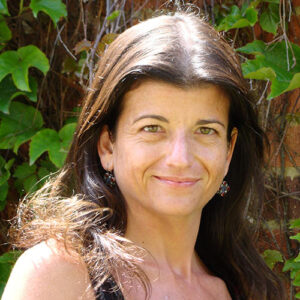
Dr. Rachel Smith is an observational astronomer investigating forming stars and protoplanetary systems. She is currently using NASA’s Infrared Telescope Facility in Hawaii to observe carbon and oxygen chemistry in massive forming stars across the Galaxy. Rachel is Head of the Astronomy & Astrophysics Research Lab, and Curator of Meteorites at the North Carolina Museum of Natural Sciences (NCMNS). She is jointly appointed as an Assistant Professor in the Dept. of Physics & Astronomy at Appalachian State University and is an Adjunct Professor in the Dept. of Physics & Astronomy at UNC Chapel Hill. Rachel has developed and teaches two undergraduate courses, Astrobiology and Star Formation, at App State, and regularly employs her students on research projects. She is interested in developing new ways of conveying the excitement of astronomy to the public and participates in several public outreach endeavors at the NCMNS and greater community throughout the year. Rachel is currently working with the American Museum of Natural History in New York to develop interactive programs and displays using new cutting-edge fly-through-the-universe software.
Rachel earned her MS and PhD in from UCLA, and previously got a BS and DVM from Cornell University. She did a brief postdoc in Planetary Science at Caltech before moving to North Carolina for her current position. When not working, Rachel spends quality time with her miniature donkeys, horses, and chickens, turkey, and cats, and loves to travel!
James Patrick Sherman
Senior Research Scientist
Appalachian Atmospheric Interdisciplinary Research Facility (AppalAIR)
Senior Research Scientist
Appalachian Atmospheric Interdisciplinary Research Facility (AppalAIR)
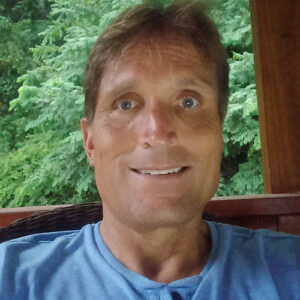
Dr. James Sherman serves as the leader of the Atmospheric Aerosols Research program at the Appalachian Atmospheric Interdisciplinary Research facility (AppalAIR). Appalachian State is home to the only co-located NOAA Federated Aerosol Network (NOAA FAN), NASA Aerosol Robotic Network (AERONET), and NASA Micro-pulsed Lidar Network (MPLNET) aerosol monitoring sites in the U.S. and relies completely on students for technical help with the measurements. The long-term (14 yr) aerosol datasets are being used by researchers worldwide, including the Aerosols Working Group of most recent IPCC Climate Assessment Report, to (a) study how changing regional air quality is impacting the solar radiation budget; (b) validate NASA satellite-based retrievals over mountainous U.S. terrain; and (c) study the roles of changing emissions and meteorology on clouds and aerosols. Sherman also currently serves as Co-PI on an NSF-IRES grant (Solomon Bililign, PI), for which he and Appalachian State students developed handheld sunphotometers and worked with student Citizen Scientists at Botswana International University of Science and Technology (BUIST) to initiate long-term aerosol measurements at BUIST in 2018
Pa Chia Thao
Ph.D. Student, UNC-Chapel Hill
2022-2023 NC Space Grant Graduate Research Fellow
Ph.D. Student, UNC-Chapel Hill
2022-2023 NC Space Grant Graduate Research Fellow
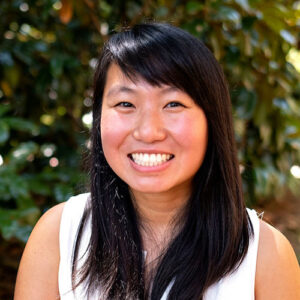
Pa Chia Thao is a doctoral student at the University of North Carolina at Chapel Hill who was awarded an NC Space Graduate Research Fellowship for the 2022-2023 year. Her research focuses on characterizing the atmospheres of young planets using a combination of ground and space-based telescopes.
Aurora Toennisson
Ph.D. Student, NC State University
2022-2023 NC Space Grant Graduate Research Fellow
Ph.D. Student, NC State University
2022-2023 NC Space Grant Graduate Research Fellow
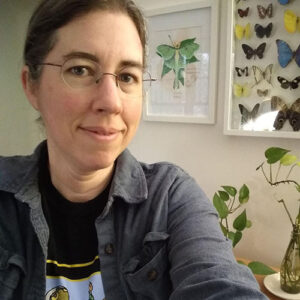
Aurora is a doctoral student in the Department of Plant and Microbial Biology at North Carolina State University. She received a 2022-2023 NC Space Grant Graduate Student Fellowship for research on spaceflight-isolated rhizobacteria. She is interested in plant-microbe communication, and how to use beneficial microbes to improve plant health in space and on Earth.
Session 2 | Space Technology
Technological innovation is the engine of exploration. Space technology developed for human spaceflight makes a difference here on the Earth. The nation’s investments enable NASA and private industry to develop, demonstrate and implement game-changing technologies and capabilities and build partnerships that expand the aerospace field. In this session, speakers will discuss their research and advancements – conducted in the commercial space industry, at NASA centers, and in academic settings – and its real-world applications in the space technology arena.
Rodward Hewlin (Moderator)
Assistant Professor & Research Scientist, Center for Biomedical Engineering & Science
UNC Charlotte
Assistant Professor & Research Scientist, Center for Biomedical Engineering & Science
UNC Charlotte
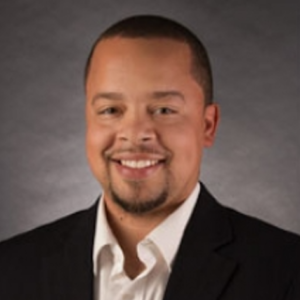
Dr. Rodward Hewlin, Jr is a graduate of North Carolina Agricultural and Technical (A&T) State University. He earned his bachelor’s, Master’s, and doctoral degrees in the discipline of Mechanical Engineering with a concentration in Biomedical Engineering during his doctoral studies. He is an Assistant Professor of Mechanical Engineering Technology (MET) at the University of North Carolina at Charlotte (UNC-C), a research associate for the Center for Biomedical Engineering and Science (CBES), and an affiliate faculty member (graduate advisor) in the department of Mechanical Engineering and Engineering Science. During his tenure at UNC-C, he has developed a research program that focuses on topics related to computational and experimental fluid dynamics specifically in the areas of medical drug delivery and implant design, fluid flow instrumentation design and development, ferrofluids and magnetics, microfluidics for cell separation and sorting applications, and renewable energy topics. His research has been funded by state funding institutions such as the North Carolina Department of Transportation (NCDOT), North Carolina Renewable and Ocean Energy Program (NCROEP), North Carolina Space Grant (NCSG) through NASA, and he was awarded a federal National Science Foundation (NSF) Early Concept Grants for Exploratory Research (EAGER) award.
Dr. Hewlin has taught fluid mechanics, CAD modelling and simulation, junior design practicum, and special topics courses in the undergraduate program in addition to computational fluid dynamics for energy applications and energy generation and conversion courses in the Applied Energy and Electromechanical Engineering graduate program at UNC-C. He was the first to teach and develop course content for the CFD graduate course in the Applied Energy and Electromechanical Engineering graduate program. Prior to becoming a faculty member at UNC Charlotte, Dr. Hewlin served as the Department Chair of the Engineering, Physics and Astronomy department at Guilford Technical Community College (GTCC). During his tenure at GTCC, Dr. Hewlin developed curriculum for the North Carolina Community College Engineering Transfer Program offered at GTCC as well at the North Carolina A&T State University and GTCC Engineering Transfer Program (developed by an articulation agreement). He alse proposed an engineering transfer programming course for the engineering transfer program which was voted on and accepted by the community college system. Dr. Hewlin was also the Secretary for the North Carolina Engineering Pathways Program. Dr. Hewlin is also an active member of the American Society of Mechanical Engineering (ASME) and the Electrostatics Society of America.
Scott Asbury
Senior Director of Programs and Orbital Reef Program Manager
Sierra Space
Senior Director of Programs and Orbital Reef Program Manager
Sierra Space
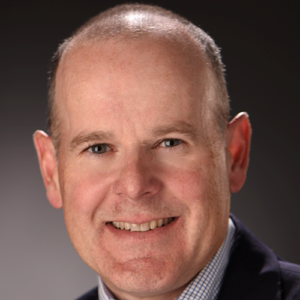
Scott Asbury serves as Senior Director Programs for Sierra Space’s Space Destinations sector, where he leads the Orbital Reef program, a partnership with Blue Origin to develop a commercial low-Earth orbit space station.
As a veteran aerospace leader, covering over three decades, Scott has built a storied career in government, leading aerospace research and technology development projects, and private industry leading major development programs for payloads, satellites and “system of systems” missions.
Prior to Sierra Space, Scott worked at Ball Aerospace for 21 years in various leadership positions, including director of programs and program manager for numerous NASA programs including the Ares launch vehicle avionics, JPSS-1 polar-orbiting weather satellite, the SAGE-III payload on the International Space Station and national security missions.
For the first 11 years of his career, Scott was an aerospace engineer at NASA’s Langley Research Center. In that role, he led research and technology development projects that advanced state-of-the art in high-performance aircraft aerodynamics and propulsion. He transitioned to leading research projects studying human factors and human effectiveness in aircraft operations. While at NASA, he trained as a commercial pilot at Flight Safety International and gained practical aviation operations experience by flying on scheduled routes with United Airlines.
Scott holds a Bachelor of Science degree in aerospace engineering from Virginia Tech in Blacksburg, Virginia, and a Master of Science in engineering management from The George Washington University in Washington, D.C. He attended the Penn State University executive leadership program and has held his Project Management Professional certification for over 20 years.
Scott lives in Niwot, Colorado, his wife Jennifer and daughter Audrey, an incoming freshman at the University of North Carolina at Chapel Hill. Scott also serves of the advisory board for the Department of Aerospace and Ocean Engineering at Virginia Tech.
Austin South
Recent Graduate, UNC-Charlotte
2022 NASA Summer Intern at NASA Marshall Space Flight Center
Recent Graduate, UNC-Charlotte
2022 NASA Summer Intern at NASA Marshall Space Flight Center
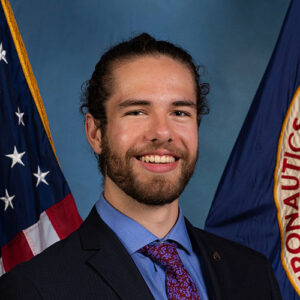
Alex South is a recent graduate of the University of North Carolina at Charlotte who received a NASA Internship Award at Marshall Space Flight Center through a 2022-2023 NC Space Grant funding opportunity. His research focused on implementing virtual reality and augmented reality to improve decision making processes across the Center.
Nicholas Mazzoleni
Ph.D. Student, NC State University
2022-2023 NC Space Grant Graduate Research Fellow
Ph.D. Student, NC State University
2022-2023 NC Space Grant Graduate Research Fellow
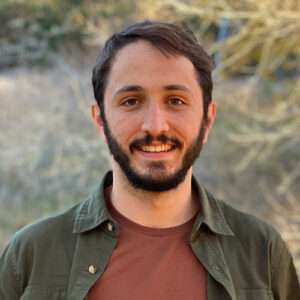
Nicholas Mazzoleni is a doctoral student in mechanical engineering at N.C. State University who was awarded an NC Space Grant Graduate Research Fellowship for the 2022-23 year. He conducted research developing hardware-in-the-loop experiments for the characterization of fluidic artificial muscle bundles that can be used for rehabilitation and prevention of human muscle atrophy in microgravity environments.
Session 3 | Future Flight
Advancements in aviation and aerospace are on the move in our state and across the nation, thanks to NASA and North Carolina-rooted industries. Cutting-edge research in future flight is also taking place at our universities and colleges, as students and faculty researchers explore complex aerodynamics, advanced materials, fuel efficiency, propulsion and automation. In this session, speakers will highlight current trends in aviation and space exploration.
Fuh-Gwo Yuan (Moderator)
Samuel P. Langley Professor, Department of Mechanical and Aerospace Engineering
NC State University
Samuel P. Langley Professor, Department of Mechanical and Aerospace Engineering
NC State University
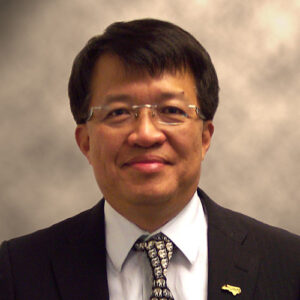
Dr. Yuan has been with North Carolina State University since 1989. he is a full professor at Mechanical and Aerospace Engineering, NC State. Currently he serves as a Samuel P. Langley Professor at National Institute of Aerospace, Hampton, Virginia. His recent research includes structural health monitoring/management (SHM), nondestructive inspection (NDI), machine learning, multi-functional materials, nano/meso scale sensors, advanced computing tools with smart sensors, damage prognosis, and energy harvesting. His research areas cover smart materials applications, wireless sensor design and energy harvesting. He has long-term interest in wavefield imaging for surface hidden damage by employing imaging algorithms in advanced structural materials. Recently, he has focused on non-contact full-field damage imaging using digital cameras together with physics-informed machine learning methods.
Riley Beaman
UAS Program Manager
NC Department of Transportation
UAS Program Manager
NC Department of Transportation
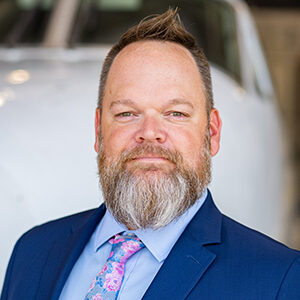
Riley Beaman has served as manager of the award-winning Unmanned Aircraft Systems (UAS) Program at the N.C. Department of Transportation Division of Aviation since January 2022.
Beaman is responsible for developing and leading North Carolina’s advances in commercial and government use of drones. That includes managing North Carolina’s participation in the BEYOND Program, the Federal Aviation Administration’s nationwide initiative to enable advanced air mobility. He also serves on North Carolina’s FEMA Working Group, ensuring tight coordination and broad UAS support for the state’s disaster emergency response.
He brings to this work 18 years of experience building and managing programs and partnerships that serve the needs of the community, industry and the state. Prior to joining NCDOT, Beaman served first as director of student affairs, then director of health and public safety at Montgomery Community College in Troy, North Carolina. He worked collaboratively with partners to build, operate and recruit students and participants to programs that met the talent needs of emerging industries and the community. That included developing and operating an acclaimed statewide drone academy for public safety agencies, helping agency personnel learn to use drones to support their operations.
During this time, Beaman was a strong partner for the NCDOT UAS Program he now leads. He served on the Division’s first UAS command center team to provide drone support for emergency responders during Hurricane Florence in 2018. That effort was recognized with a 2019 Association for Unmanned Vehicle Systems International XCELLENCE Award in the humanitarian category. He supported NCDOT’s state government integration initiatives and assisted with training, regional outreach workshops and summits.
Beaman holds a Bachelor of Science degree in Sports Management/Health Care Administration, with a minor in Business Administration from Methodist University, and a master’s in educational administration from Western Carolina University. He holds credentials to train and support drone operators in basic and advanced operations; manage emergency, disaster and incident planning and response; perform complex UAS operations; serve as a visual observer of beyond visual line of sight (BVLOS) operations and operate UAS thermal cameras. He holds North Carolina Firefighter Certification and is a graduate of Leadership Montgomery.
Ashlee Bracewell
Structural Test Engineer
NASA Marshall Space Flight Center
Structural Test Engineer
NASA Marshall Space Flight Center
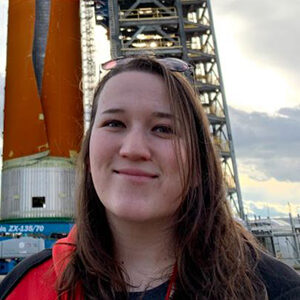
Ashlee is a structural test engineer in the Test Laboratory at Marshall Space Flight Center in Huntsville, Alabama. MSFC and the Test Laboratory have tested rockets since the early days of the Space race 60 years ago, and Ashlee helps continue that legacy today by leading and working with teams of engineers, analysts, designers, technicians, and customers to design and execute structural tests on spaceflight hardware. This can include rockets- like SLS or ULA’s Vulcan, space stations- like the ISS, or research projects- like the Shell Buckling Knockdown Factor Tests that help design the next generation of space structures. Ashlee earned a bachelor’s degree in civil engineering from North Carolina State University in 2021, where she spent many years engaged in coursework and extracurricular activities, such as the High-Powered Rocketry Club at NC State, that is partially funded by Space Grant. The High-Powered Rocketry Club competes in the Student Launch Challenge, one of many Artemis Student Challenges that helped introduce Ashlee to what it’s like to work for NASA. These critical years at NC State truly helped prepare Ashlee for the work she does today!
Sterling Van Adams
Undergraduate Student, UNC-Chapel Hill
2022 NASA Summer Intern, NASA Ames Research Center
Undergraduate Student, UNC-Chapel Hill
2022 NASA Summer Intern, NASA Ames Research Center

Sterling Adams is an undergraduate student at the University of North Carolina at Chapel Hill studying astrophysics and applied engineering. Through the support of the North Carolina Space Grant, she worked as a Rotorcraft Aeromechanics Intern at NASA Ames Research Center in Silicon Valley. During her internship, Sterling researched the predicted flight conditions at potential landing sites of the Mars Science Helicopter in Martian atmosphere. She modeled these forecasted conditions utilizing 400+ data visualizations to provide risk assessment and aid the Mars Vehicle Exploration Team in ensuring the successful operation of the Mars Science Helicopter.
Olivia Scott
Undergraduate Student, NC State University
2022 Collier Aerospace Intern (NCSG Career Internship Award)
Undergraduate Student, NC State University
2022 Collier Aerospace Intern (NCSG Career Internship Award)
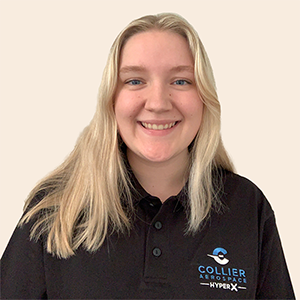
Olivia Scott is an undergraduate student at North Carolina State University who received an internship at Collier Aerospace, with support through NC Space Grant 2022-23 internship funding. She studied structural analysis and optimization of aerospace structures using various software tools, focusing on Collier Aerospace’s HyperX software.
Session 4 | Career Panel
In this panel, students will hear from technical experts about their academic and career pathways, as well as gain insight into recruitment trends and desired skills from human resource professionals. Students will have the opportunity to get answers to their questions from experts in diverse fields.
Jeff Mobley (Moderator)
VP Programs, Mechanisms and Motion Systems
Sierra Space
VP Programs, Mechanisms and Motion Systems
Sierra Space
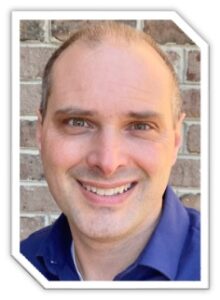
Jeff Mobley serves as Vice President of Mechanisms and Motion Systems for Sierra Space’s Applications sector, where he leads a talented product development team delivering a wide range of technology innovations to external space industry Tier 1 suppliers as well as internally to other product lines and sectors in support of larger ventures within Sierra Space.
Jeff has 29 years of engineering and management experience related to design, development, fabrication and testing of electro-mechanical systems, including 24 years in the space industry.
Jeff has been with Sierra Space for 18 years in various technical and leadership roles and previously served as Director of Engineering. His prior projects include mechanisms in support of space programs such as Mars Perseverance Rover, Mars Curiosity Rover, Global Precipitation Measurement, Lunar Reconnaissance Orbiter, Solar Dynamics Observatory, Mars Phoenix Lander, and the Sierra Space Dream Chaser™ spaceplane. These custom designed products perform functions such as antenna pointing, solar array positioning, robotic arm articulation, flight surface control, wing folding, camera pointing, and descent braking.
Jeff holds a Bachelor of Science degree in Mechanical Engineering from North Carolina State University and in 2021 was inducted into the NCSU Mechanical And Aerospace Engineering Hall of Fame. He serves on the technical advisory board of the American Gear Manufacturers Association (AGMA) Aerospace Gearing Committee and on the advisory board of the North Carolina Space Grant.
Jeff has authored and presented multiple technical papers for the Aerospace Mechanisms Symposium. He is a co-author on U.S. Patent, #6667564 “Mechanically-Commutated DC Motor”.
Michael Rice
Satellite Mission Operations
KBR
Satellite Mission Operations
KBR
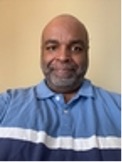
Michael Rice was born and raised here in North Carolina. He has worked in satellite mission operations for over 20 years. Michael received his undergraduate degree in Chemistry from the University of North Carolina at Chapel Hill, and later earned a M.S. degree in Technology Systems from East Carolina University. He began his career as a Space Systems officer in the U.S. Air Force, working with the Defense Meteorological Satellite Program (DMSP) at Offutt Air Force Base in Omaha, Nebraska. After a four-year stint in the military, he became a contractor at the NASA Goddard Space Flight Center (GSFC) in Greenbelt, MD.
Michael has worked with a myriad of different unmanned space programs, including the Relay Mirror Experiment (RME), NASA Small Explorers Program (SMEX), Hubble Space Telescope (HST), Landsat-7, and the Lunar Reconnaissance Orbiter (LRO), to name a few. He has worked in all phases of the spacecraft mission lifecycle, from pre-launch requirements development, integration and test (I&T), Launch and Early Orbit (LEO), and normal mission operations. Currently, Michael works as a contractor for KBR in their Science & Space Business Development unit, as a senior technical writer.
Ashlee Bracewell
Structural Test Engineer
NASA Marshall Space Flight Center
Structural Test Engineer
NASA Marshall Space Flight Center
See speaker bio above in Session 3: Future Flight.
Scott Asbury
Senior Director of Programs and Orbital Reef Program Manager
Sierra Space
Senior Director of Programs and Orbital Reef Program Manager
Sierra Space
See speaker bio above in Session 2: Space Technology.
Riley Beaman
UAS Program Manager
NC Department of Transportation
UAS Program Manager
NC Department of Transportation
See speaker bio above in Session 3: Future Flight.
James Ainsworth
Managing Director of Engineering
Collier Aerospace – HyperX Software
Managing Director of Engineering
Collier Aerospace – HyperX Software
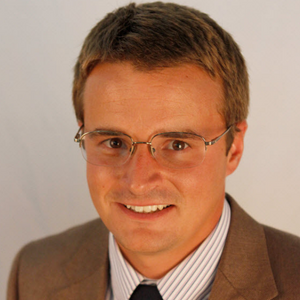
James Ainsworth is the director of engineering services for HyperX – Collier Aerospace Corporation. He earned his B.S. in aerospace engineering from North Carolina State University and received an NC Space Grant scholarship during his studies there.
Since joining the company in 2009, Ainsworth has focused his structural engineering career on performing analytical trade studies and has developed analytical solutions for many aerospace and space launch companies, including NASA, Blue Origin, SpaceX, TSC, Bell, Bombardier, Boeing, Gulfstream, Embraer and many others. Ainsworth has authored and presented several technical papers and provided many training courses focused on structural engineering for metal and composite airframes. In 2013, Ainsworth received the NASA NESC Engineering Excellence Award for his work on the Orion crew capsule.
Since 2016, Ainsworth has managed a team of engineers that perform certification analysis on aircraft and spacecraft structures. In 2021, Collier Aerospace opened an engineering office in Raleigh, North Carolina, for which Ainsworth is the managing director.